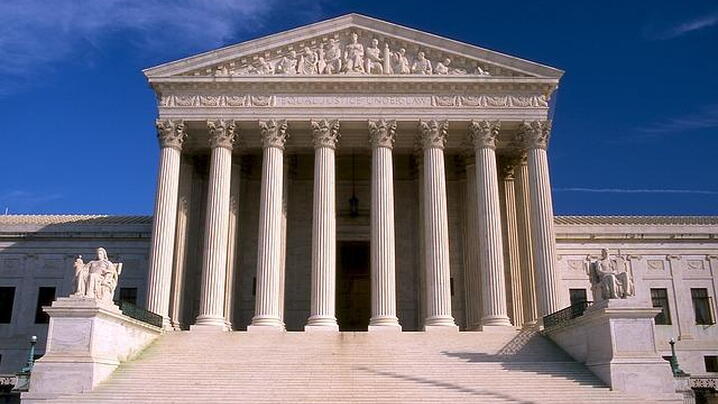
History will remember Justice Ginsburg as a glass ceiling smasher, a feminist, a liberal, a dissenter, and an icon. States and local governments will also remember something subtler about her which was more visible in the Court’s lower profile cases. And that was her pragmatism.
Perhaps the most important case for states and local governments where Justice Ginsburg demonstrated this quality is South Dakota v. Wayfair. She was the sole liberal Justice to vote to get rid of the Court’s holding from the 1960s that businesses must have a physical presence in a state to be required to collect sales tax. States and local governments have collected billions of dollars in additional tax revenue since this 2018 decision.
Many issues of importance to states and local governments litigated in the Supreme Court aren’t decided on ideological grounds. In these cases, states and local governments hope to appeal to the practical sensibilities of the Justices. They often found a listening ear in Justice Ginsburg.
In the last term Justice Ginsburg repeatedly demonstrated her pragmatism—particularly as it related to the interests of states and local governments. Reed v. Town of Gilbert (2015), holding that strict (usually fatal) scrutiny applies to content-based restrictions on speech, has probably been the worst case for local governments decided in the last decade. Reed has resulted in numerous laws and ordinances being struck down. Justice Ginsburg joined Justice Kagan’s concurring opinion, which criticized the majority opinion in Reed for the practical problems it would cause local governments.
In Barr v. American Association of Political Consultants (2020), the Supreme Court got its first chance to apply Reed in another case. The State and Local Legal Center (SLLC) filed an amicus brief asking the Supreme Court to “narrow” Reed. While a majority of the Court voted to keep Reed the law of the land, Justice Kavanaugh—fairly—accused Justice Breyer, in an opinion Justice Ginsburg joined, of trying to overrule Reed in his dissenting opinion.
Nationwide injunctions have been of importance to local governments particularly in the last few years. In Little Sisters of the Poor v. Pennsylvania (2020), the SLLC filed an amicus brief solely defending the use of nationwide injunctions. Because the Court upheld the regulations at issue in the case (meaning the lower court shouldn’t have issued any injunction), the Court had no reason to discuss the merits of nationwide injunctions. Nevertheless, Justice Ginsburg, in her dissenting opinion, defended the district court’s decision to issue a nationwide injunction.
An easy way of assessing a Justice’s commitment to pragmatism is to look at how often they cite to amicus briefs—which are intended to explain the practical implications of a case—in their opinions. No Justice currently on the Court was as likely to cite to an SLLC amicus brief as Justice Ginsburg.
For example, in Gobeille v. Liberty Mutual Insurance Company (2016), the Supreme Court held that the federal Employee Retirement Income Security Act preempts state laws that require health insurers to report particular data to the state. Justice Ginsburg cited three times in her dissenting opinion to the SLLC’s amicus brief which in her words informed the Court of states “urgent need for information yielded by their health care data-collection laws.”
Pragmatism isn’t a quality that makes people famous. But Justice Ginsburg didn’t seek fame. Even her critics are likely to admit that if she sought anything it was fairness for everyone. Part of being fair is being practical. Also, being practical keeps a person honest and humble—two other qualities Justice Ginsburg exemplified, neither of which made her famous, but both of which make her great.
New, Reduced Membership Dues
A new, reduced dues rate is available for CAOs/ACAOs, along with additional discounts for those in smaller communities, has been implemented. Learn more and be sure to join or renew today!
